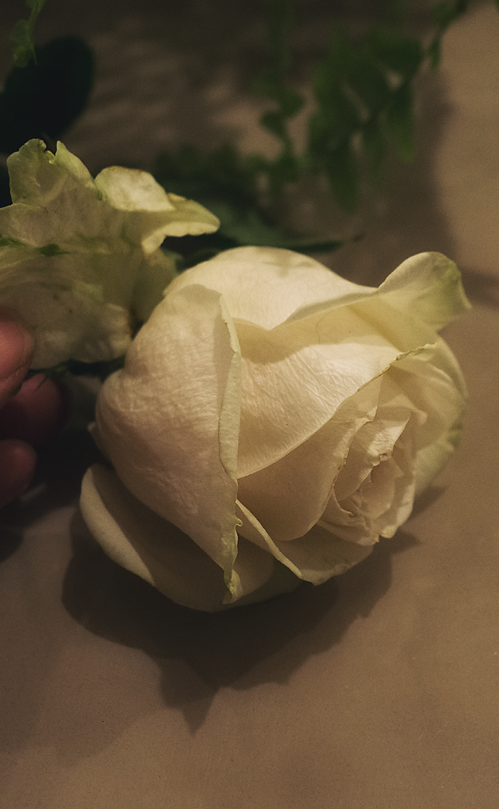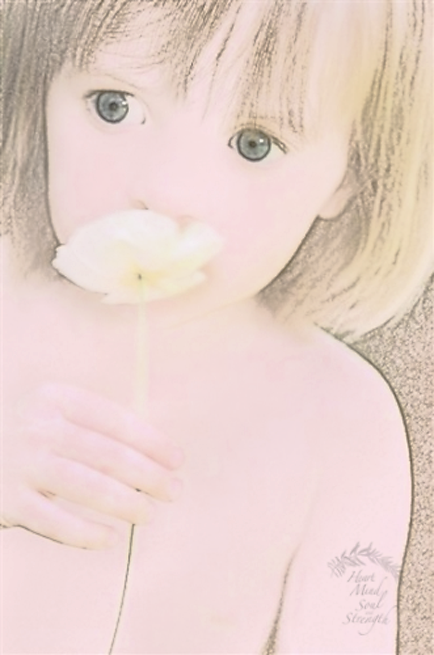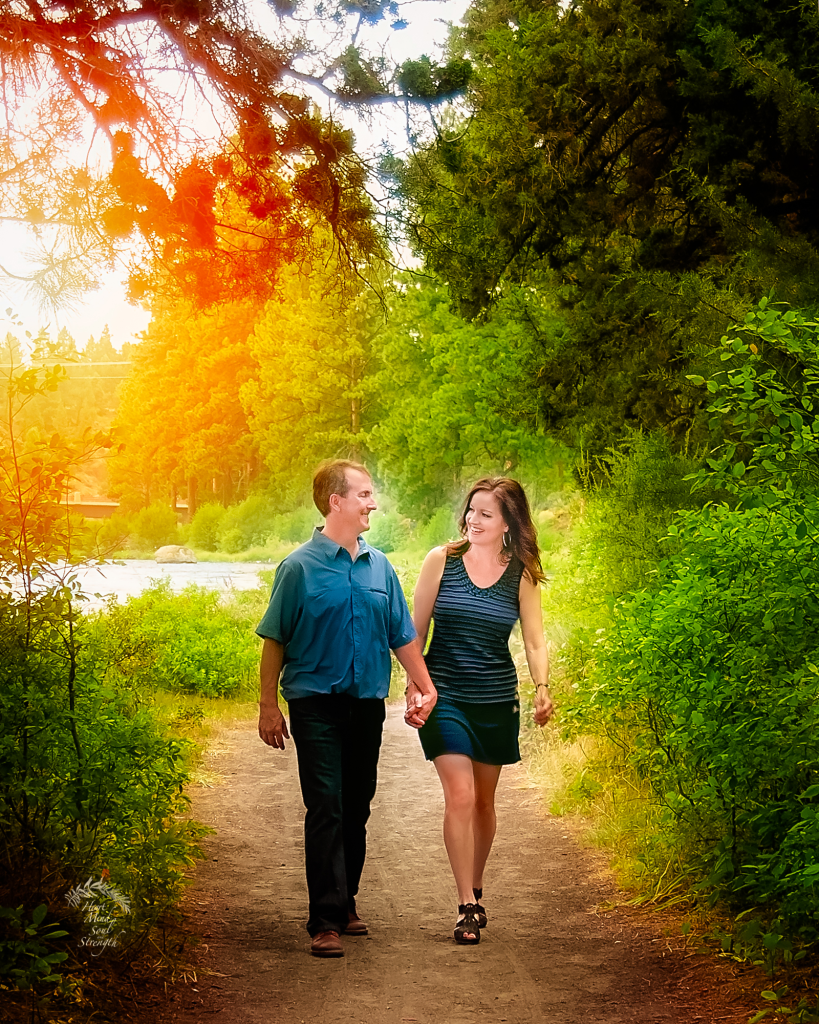 “I married a monster.” I was shocked and saddened to hear an acquaintance thus describe her marriage. I love to hear people’s stories! I mean stories of their lives, more than just an anecdote or two. But yesterday after that life story, I couldn’t shake the sadness. Listening was painful, and my mind couldn’t let it go afterward. It forced me to unpack the story and more importantly for me, why it raised such an emotional response in me. It was a story of verbal and emotional abuse with some occasions of physical abuse between a husband and wife. The story was told by a woman my own age still married to this abuser who during his working career had a position of leadership in the Christian community. In his defense, there has been some improvement in his behavior now in his old age while suffering from a progressive disease. But their whole adult lives have been lived in the dark shadow of pornography and abuse.
“I married a monster.” I was shocked and saddened to hear an acquaintance thus describe her marriage. I love to hear people’s stories! I mean stories of their lives, more than just an anecdote or two. But yesterday after that life story, I couldn’t shake the sadness. Listening was painful, and my mind couldn’t let it go afterward. It forced me to unpack the story and more importantly for me, why it raised such an emotional response in me. It was a story of verbal and emotional abuse with some occasions of physical abuse between a husband and wife. The story was told by a woman my own age still married to this abuser who during his working career had a position of leadership in the Christian community. In his defense, there has been some improvement in his behavior now in his old age while suffering from a progressive disease. But their whole adult lives have been lived in the dark shadow of pornography and abuse.
After hearing her story, I was angry. Of course, I was angry with the abusive husband, especially given his influential position. But I was also angry with the wife. I was angry that she put up with his behavior, particularly because her children were an audience for the verbal abuse. I was angry because I saw the manifestations in her personality resulting from her response to the abuse. Notice I didn’t say resulting from her abuse, but rather from her handling of the abuse.
But why was I so angry? Because I see that women of my generation weren’t taught how to deal with abuse. Yes, she should have refused to be part of this abusive relationship. In fact, she herself said that she regrets not getting out in the first month of marriage. But what was missing from our training that made women accept a lifetime of abuse? Is this still an issue even in the modern era of women’s rights? If so, how can we train our daughters and granddaughters, our sons and grandsons so they won’t participate in an abusive situation?
I don’t want to fall into social Marxism by dividing humanity into broad categories and then pitting one against the other, such as rich/poor, men/women, liberal/conservative, black/white. Let me be clear that I’m not putting all men into the abuser category and all women into the victim category. Abusive behavior is common to women as well as men and spans all relationships. Boss/employer, even employee/boss in some cases, parent/child or child/parent, siblings, instructor/student, basically all human relationships regardless of gender can be abusive.
May I just mention my personal observations on abusive relationships? I’m not a trained counselor. In fact, I run away from getting involved in issues of marital discord or any discord for that matter. I hate conflict and am pretty good at avoiding it all costs. Which brings me to my observations. Some of us avoid confronting even when it’s necessary because we had dysfunctional childhoods. At a young age, we were exposed to conflicts in the home that our immature emotions weren’t capable of processing. We were frightened. We didn’t know who to side with because the perpetrator may have had power over us. We sometimes resented the innocent party because she/he didn’t stand up to the wrong-doer. So we grew up dodging bullets. Dodging became our tool of choice for dealing with conflict. But it didn’t save us from hurt, anger or resentment. The other phenomenon is that a child who is abused, particularly sexually, grows up to be an adult who accepts further abuse. As a child, they didn’t have the power to stop the abuse and as an adult, they don’t believe they have the power to stop abuse. They are so beat down, that they think ill-treatment is their lot in life. They don’t realize they now have the power to stand up and refuse to be abused.
So depending on our backgrounds, we as women or men may be more at risk for tolerating abuse. Let’s put this information out there as a warning to anyone with a tough childhood so they can take inventory and refuse to be defined by their past experiences. Whether it’s your own issue or a friend’s, take a look at childhood circumstances. Not to stay in the past feeling helpless, but simply recognizing that our outlook was influenced by early experiences. Name the feelings the child felt. Name the bad behaviors witnessed or known by the child, particularly immoral sexual behaviors either involving the child directly or sexual behaviors the child was aware of. Acknowledge the inability of the child to cause or stop these bad behaviors. Name the feelings the person feels as an adult when in the abusive situation. Name the bad behaviors of the offender. Acknowledge the ability of the offended to take action. The offender may never change, but the offended can change themselves. Name the negative responses of the offended. Anger, resentment, hatred toward the offender. Recognize that negative emotions follow the offended even when they separate from the offender. How can these negative emotions be dealt with in a healthy way? What responses are better? Forgiveness, pity, etc. Name the options for avoiding future abuse. Separate, press charges, counseling? What authority over the abuser can be called upon to intervene? Law enforcement, employer, church? In the case of an offender who desires to change, who will he/she be accountable to?
 Now for the rest of us who just hit rough spots (or years) in the course of maturing in our marriages, or childrearing, or friendships, or work situations. I’m not talking about abuse now, just not getting along. First of all, it’s important to search our own hearts. We are each responsible for our own responses, both at the moment of offense and afterward. If there has been a history of harshness, demeaning, devaluing, and criticism, there’s a very good chance that there is resentment, even hostility, defensiveness, and bitterness in the heart of the offended. This is a roadblock to improving the relationship. As wrong as the act of hurting is, it is also wrong to harden your heart and hold onto unforgiveness and the desire to pay back wrong for wrong. There will be consequences for the offender, but it isn’t our job to make that happen. God is a much better judge than we are. This is not to minimize the offense. We don’t deny our pain. We simply refuse to make the other pay. Even after forgiveness, that pain can spill out at unexpected moments. No one should feel ashamed of tears. After all, wounded emotions can take years to heal. In the moment of offense, we also have the choice of our response to the offender. I know there are many who read this blog who aren’t believers in Jesus, but I’m speaking to Christians here- we should be aware that Jesus is listening to our words. Today I heard a pastor remind his listeners that we should picture Jesus standing behind the one we are at odds with. In reality, our response has more to do with our relationship to Jesus than it does with our human relationships. Christ asks us to treat others with respect and love even if they are acting disrespectfully and unlovingly. Note: In the case of marriage, Scripture specifically asks wives to show respect for husbands, and asks husbands to show love to wives. Apparently, those are inherent needs of each sex. We must do what Jesus asks even when we are provoked by the other’s bad behavior. Recognizing that male and female are different and one isn’t better than the other is a first step in defusing fights. We are created different at our core by a wise God who is reflected in both male and female. In fact, a harmonious marriage displays the way Jesus loves his church and the church respects him.
Now for the rest of us who just hit rough spots (or years) in the course of maturing in our marriages, or childrearing, or friendships, or work situations. I’m not talking about abuse now, just not getting along. First of all, it’s important to search our own hearts. We are each responsible for our own responses, both at the moment of offense and afterward. If there has been a history of harshness, demeaning, devaluing, and criticism, there’s a very good chance that there is resentment, even hostility, defensiveness, and bitterness in the heart of the offended. This is a roadblock to improving the relationship. As wrong as the act of hurting is, it is also wrong to harden your heart and hold onto unforgiveness and the desire to pay back wrong for wrong. There will be consequences for the offender, but it isn’t our job to make that happen. God is a much better judge than we are. This is not to minimize the offense. We don’t deny our pain. We simply refuse to make the other pay. Even after forgiveness, that pain can spill out at unexpected moments. No one should feel ashamed of tears. After all, wounded emotions can take years to heal. In the moment of offense, we also have the choice of our response to the offender. I know there are many who read this blog who aren’t believers in Jesus, but I’m speaking to Christians here- we should be aware that Jesus is listening to our words. Today I heard a pastor remind his listeners that we should picture Jesus standing behind the one we are at odds with. In reality, our response has more to do with our relationship to Jesus than it does with our human relationships. Christ asks us to treat others with respect and love even if they are acting disrespectfully and unlovingly. Note: In the case of marriage, Scripture specifically asks wives to show respect for husbands, and asks husbands to show love to wives. Apparently, those are inherent needs of each sex. We must do what Jesus asks even when we are provoked by the other’s bad behavior. Recognizing that male and female are different and one isn’t better than the other is a first step in defusing fights. We are created different at our core by a wise God who is reflected in both male and female. In fact, a harmonious marriage displays the way Jesus loves his church and the church respects him.